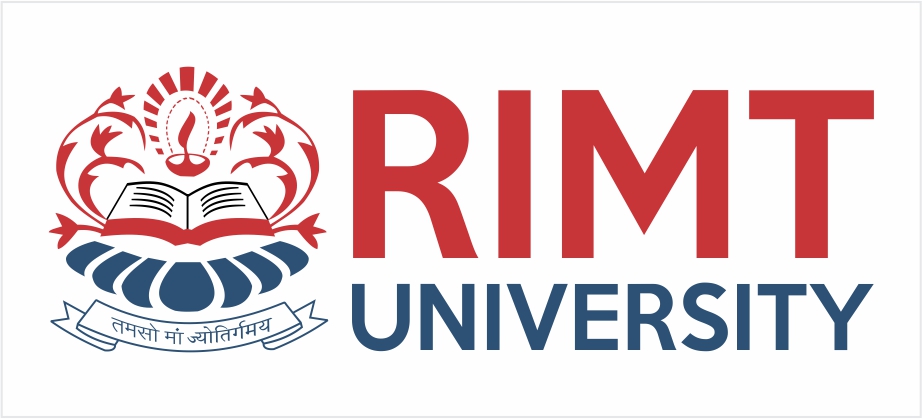About Programme
The eligible candidates are provided training in all the types of equipment that are used for anaesthesia, different anaesthesia agents, the techniques that need to be used for giving anaesthesia as well as its allowable dosage which depends on the patient and operational conditions.
Eligibility & Admission
- Candidate must have passed Bachelor‟s degree of minimum of 3 years duration in Anaesthesia & Operation Theatre Technology/Anaesthesia Technology/ Operation Theatre Technology with minimum 50% aggregate marks at HSC.
- Admission on the basis of entrance exams by RIMT University.
- Post Graduate entrance criteria requires to be compulsory registered member of National Commission for Allied and Healthcare Professions (NCAHP).
| PROGRAM FEE | AMOUNT |
|---|---|
| Application Fee (One Time) | 1,000/-INR |
| Registration Fee (One Time) | 15,000/-INR |
| Security (One Time – Refundable) | 8,000/-INR |
| Semester Fee | 75,000/-INR |
Scholarship
| Marks in Graduation | Scholarship Per Semester | Applicable Fee After Scholarship Per Semester |
| 60% / 6CGPA and Above | 20% | 60,000/-INR |
| Disability Level | Scholarship Per Semester | Applicable Fee After Scholarship Per Semester |
| 90% & Above 90% | 30% | 52,500/-INR |
| 75% & Below 90% | 20% | 60,000/-INR |
| 50% & Below 75% | 10% | 67,500/-INR |
| Category | Scholarship Per Semester | Applicable Fee After Scholarship Per Semester |
| Wards of Param Veer Chakra | 30% | 52,500/-INR |
| Winners of Maha Veer Chakra | 20% | 60,000/-INR |
| Winners of Veer Chakra | 10% | 67,500/-INR |
| Work Tenure | Scholarship Per Semester | Applicable Fee After Scholarship Per Semester |
| More than 5 years continuous service | 30% | 52,500/-INR |
| 1 Year – 5 Years continuous Service | 20% | 60,000/-INR |
| Category | Scholarship Per Semester | Applicable Fee After Scholarship Per Semester |
| Single girl child | 20% | 60,000/-INR |
| Category | Scholarship Per Semester | Applicable Fee After Scholarship Per Semester |
| Parentless | 30% | 52,500/-INR |
| Either fatherless or motherless provided the annual family income is less than 2.5 lakh | 20% | 60,000/-INR |
Programme Education Objectives (PEOs)
- PEO1 Professional Competence: Graduates should possess the necessary knowledge and skills required to perform clinical procedures in operation theatre and anesthesia technology efficiently and effectively.
- PEO2 Critical Thinking and Problem Solving: Graduates will be able to identify, analyze, and solve problems related to Operation Theatre and Anesthesia Technology using critical thinking skills and evidence-based practices.
- PEO3 Leadership and Management: Graduates will be prepared to assume leadership and management roles in healthcare organizations and be able to effectively manage resources and personnel
- PEO4 Ethical and Professional Behavior: Graduates will demonstrate ethical and professional behavior in their interactions with patients, colleagues, and other healthcare professionals.
Programme Outcomes (POs)
- PO1 Demonstration: Demonstrate basic knowledge of pathophysiology of common conditions requiring surgical procedures.
- PO2 Preparation: Prepare the operation theatre, load and label requested drugs, gather and assemble the surgical equipment for common surgical procedures as per the complexity and duration.
- PO3 Recognize: Recognize the anxiety of patients in peri-operative state and appropriately assist to shift, induce anaesthesia and position patient for surgical procedure
- PO4 Identify: Recognize the anxiety of patients in peri-operative state and appropriately assist to shift, induce anaesthesia and position patient for surgical procedure
- PO5 Assistance: Assist consultant in emergency department while receiving acutely ill patients, stabilize them and transport in or out of hospital as per the individual needs.
- PO6 Work as a team member: Function as a member of rescue / code blue team in recognizing cardiac arrest and participate in revival cum cardiopulmonary resuscitation inside and outside hospital.
- PO7 Management: Manage the overall upkeep of the equipment used in intensive care unit and transport of critically ill patients and assist the specialist in resuscitation, management and transfer of such patients with appropriate paraphernalia.
- PO8 Contribution: Contribute in planning, setting up, commissioning, maintaining and managing operation theater, emergency departments, and intensive care unit, cardiac catheterization lab and emergency response services as a team member.
- PO9 Self Assessment: Engage oneself in self-assessment and structure their continuing professional education to refine existing skills and acquire new skills for patient care and professional advancement.
- PO10 Apply: Understand the fundamentals and applications of Anesthesia, Surgical & Critical Care Equipments.
- PO11 Learning: Learn and Understand different Anesthetic & Surgical Procedures & their benefits as well as complications.
- PO12 Analyse: Ability to analyse, Monitor & give care to a Surgical/Anaesthetized patient.
Programme Specific Outcomes (PSOs)
- PSO1 Knowledge of anatomy and physiology: Students should have a deep understanding of the human body and how it functions, particularly in relation to the respiratory and circulatory systems.
- PSO2 . Knowledge of surgical and anesthesia equipment: Students should be familiar with the various instruments and machines used in the operation theatre, as well as the different types of anesthesia and how to administer them safely.
- PSO3 Patient care: Students should be able to provide appropriate care to patients before, during, and after surgery, including monitoring vital signs and administering medications as needed.
Career Prospects
There are many different career options that the postgraduates of M.Sc. in Operation & Anaesthesia Technology can go for. Majority of the top hospitals and institutes hire them at a good pay scale and on a good post.
